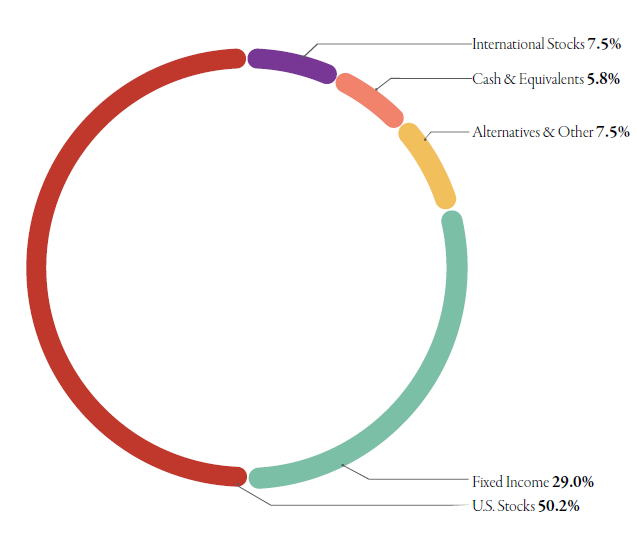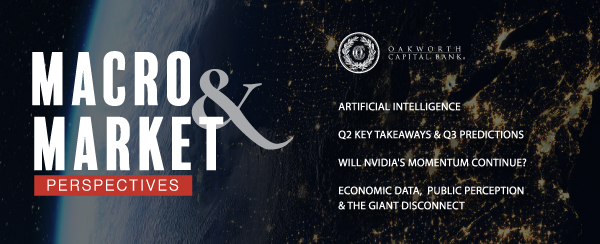If you only had three words to best explain the 2nd quarter of 2024, they would be artificial, intelligence and inflation.
Of course, the first two go together under the acronym AI, which is on everyone’s lips. It doesn’t matter if you don’t know the first thing about the technology or the science. All you needed to know in the 2nd quarter was that AI was where the money was. It is going to fundamentally change our lives and how we conduct business. So, you had better get in now while the getting is good, and investors have done just that.
On the heels of the 1st quarter’s eye-watering returns, the 800-pound gorilla in the publicly traded AI space, NVIDIA, posted another whopping 36.7% total return during the quarter. This enabled large-cap growth stocks, as an asset class, to continue to dominate the domestic stock markers.
Simply put, if you weren’t in growth stocks, if you weren’t in tech, and you weren’t in Al, you didn’t make a lot of money during the 2nd quarter of 2024. If you were, you were probably pleased with the results.
The last word, inflation, is one that has been on everyone’s minds, and hitting everyone’s wallets… and has been for a while.
- The good news is the official inflation gauges are coming down.
- The bad news is consumer prices aren’t.
This has caused a disconnect between the economic data and public perception. How can inflation be falling when my grocery bill is continuing to climb? However, to economists, falling inflation is nothing more than prices increasing at a decreasing rate. Another word for chis is “disinflation’: which analysts have largely refrained from using because it is even more confusing to the consumer.
Even so, the Federal Reserve has been waiting on lower inflation numbers, or disinflation, to become more pronounced before cutting the target overnight lending rate. If it seems like we have been waiting for chis for a long time, we have. However, when inflation is finally under control, the Fed will cut the overnight rate, and the cost of money will go down in the U.S. economy.
This will be great news for people looking to buy a home or who maintain a balance on a revolving line of credit. More simply, credit card rates will start to go down when the Fed finally starts cutting. Obviously, this should goose consumer spending in our consumer-driven economy, and chat is almost always a good thing.
As of the end of June, the easy money said the first Fed rate cut should come in September, with another one expected in December. That would be music to a lot of people’s ears.
Until such time, the domestic consumers and investors will have to figure out a way to keep up the current levels of activity and prices. That they have been able to do so for so long is nothing short of spectacular. Is another three months too much to ask?
In the end, this past quarter was another surprisingly good one in the markets and the economy. Why? Because AI is here to stay and inflation appears to be coming down.
Thank you for your continued support,

John Norris
Chief Economist
Our Investment Committee distributes information on a regular basis to better inform our clients about pending investment decisions, the current state of the economy and our forecasts for the economy and financial markets. Oakworth Capital currently advises on approximately $1.9 billion in client assets. The allocation breakdown is in the chart below.

This content is part of our quarterly outlook and overview. For more of our view on this quarter’s economic overview, inflation, bonds, equities and allocation read latest issue of Macro & Market Perspectives.

The opinions expressed within this report are those of the Investment Committee as of the date published. They are subject to change without notice, and do not necessarily reflect the views of Oakworth Capital Bank, its directors, shareholders or employees.


